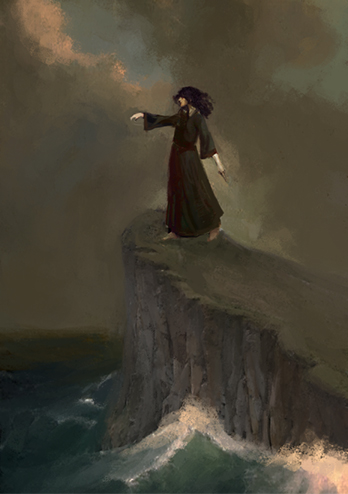Difference between revisions of "Template:Occult.live:Today's featured article"
Occultwiki (talk | contribs) |
Occultwiki (talk | contribs) |
||
| (14 intermediate revisions by the same user not shown) | |||
| Line 1: | Line 1: | ||
[[File: | [[File:Angelene Tubbs.jpg|200px|left]] | ||
A '''[[witch]]''' is a practitioner of [[witchcraft]]. Although the term can be gender-neutral, it is usually used to describe a female who uses [[ritual magic|magic]], while a male engaging in similar practices is called a [[warlock]]. The word witch derives from the Old English nouns ƿiċċa [ˈwittʃɑ] and ƿiċċe [ˈwittʃe] ('sorceress, female witch'). The word's further origins in Proto-Germanic and Proto-Indo-European are unclear. The Old English verb ''wiccian'' has a cognate in Middle Low German ''wicken'' (attested from the 13th century, besides ''wichelen'' 'to bewitch'). | |||
Throughout history there has not been a consistent definition of the term "witch." Johannes Nider and other 15th century writers used the Latin term ''maleficus'' to mean witch—a person who performed ''maleficium'', harmful acts of sorcery, against others. | |||
'''([[ | '''([[Witch|Full Article...]])''' | ||
Revision as of 05:55, 2 May 2025
A witch is a practitioner of witchcraft. Although the term can be gender-neutral, it is usually used to describe a female who uses magic, while a male engaging in similar practices is called a warlock. The word witch derives from the Old English nouns ƿiċċa [ˈwittʃɑ] and ƿiċċe [ˈwittʃe] ('sorceress, female witch'). The word's further origins in Proto-Germanic and Proto-Indo-European are unclear. The Old English verb wiccian has a cognate in Middle Low German wicken (attested from the 13th century, besides wichelen 'to bewitch').
Throughout history there has not been a consistent definition of the term "witch." Johannes Nider and other 15th century writers used the Latin term maleficus to mean witch—a person who performed maleficium, harmful acts of sorcery, against others.
